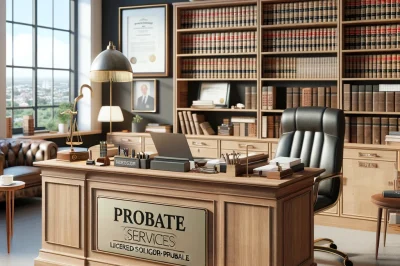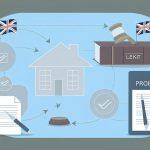Table of Contents

Whether or not probate is required in the UK depends on various factors, including the assets and liabilities left behind by the deceased person. Having a will does not necessarily eliminate the need for probate. Probate is the legal process of administering the estate of a deceased person, which involves proving the validity of the will and distributing the assets according to its instructions.
If the estate is relatively small or consists mainly of jointly owned assets, such as a jointly owned property or joint bank accounts, probate may not be necessary. In such cases, the assets can pass automatically to the surviving joint owner(s) without the need for probate.
However, if the estate includes significant assets solely owned by the deceased person or if there are complex legal issues involved, probate will likely be required. Probate provides the legal authority for the executor named in the will (or administrator if there is no will) to handle the deceased person’s estate, including gathering assets, paying debts, and distributing the remaining assets to beneficiaries.
The Probate Process
The probate process in the UK involves several steps and can vary depending on the complexity of the estate. Here is a general overview of the main steps involved:
- Gathering information: The first step is to gather all the necessary information about the deceased person’s assets, debts, and beneficiaries. This includes locating the original will, if there is one, as well as identifying bank accounts, investments, properties, and any outstanding debts.
- Valuing the estate: The executor (or administrator) is responsible for valuing all the assets of the estate. This typically involves obtaining professional valuations for properties, investments, and other significant assets. Additionally, the executor needs to calculate any outstanding debts or liabilities.
- Applying for probate: The executor must apply for a Grant of Probate (or Letters of Administration if there is no will) from the Probate Registry. This involves completing the necessary application forms, paying the required fee, and submitting the relevant documents, including the original will, death certificate, and an inheritance tax form.
- Paying inheritance tax: If the estate’s value exceeds the inheritance tax threshold (which is subject to change), inheritance tax may be due. The executor must calculate the tax liability, complete the appropriate tax forms, and pay any tax owed before the Grant of Probate is issued.
- Obtaining the Grant of Probate: Once the application is processed and approved, the Probate Registry will issue the Grant of Probate. This legal document confirms the executor’s authority to administer the estate and distribute assets according to the terms of the will.
- Settling debts and taxes: The executor is responsible for settling any outstanding debts, such as funeral expenses, outstanding bills, and other liabilities. They must also file any necessary tax returns, including income tax or capital gains tax for the period up to the date of death.
- Distributing the estate: After debts, taxes, and administrative expenses have been paid, the executor can distribute the remaining assets to the beneficiaries named in the will. This involves transferring ownership of properties, closing bank accounts, and distributing personal possessions or specific gifts as specified in the will.
- Final accounts and closing the estate: Once all the assets have been distributed, the executor prepares final accounts, which provide a detailed breakdown of the estate’s administration, including receipts, payments, and distributions. The final accounts are then submitted to the beneficiaries for approval. Once approved, the executor can proceed to close the estate.
Swansea Legal Solutions
It’s important to note that this is a general outline, and the probate process can be more complex depending on the specific circumstances. It’s also worth noting that the rules and processes regarding probate can change, so it’s advisable to consult with a professional advisor to obtain up-to-date and personalised information based on your specific circumstances.
Call the specialist probate team at Swansea Legal Solutions today on 01792 420844 to discuss your options or you can read more about our services here https://swansealegalsolutions.co.uk/wills-probate-and-estate-planning
- Navigating Probate in the UK: A Step-by-Step Guide – 1 July 2025
- Common Mistakes to Avoid During the UK Probate Process – 27 June 2025
- Probate for Property: What Happens to a House in the UK Probate process? – 24 June 2025







Leave a Reply
You must be logged in to post a comment.